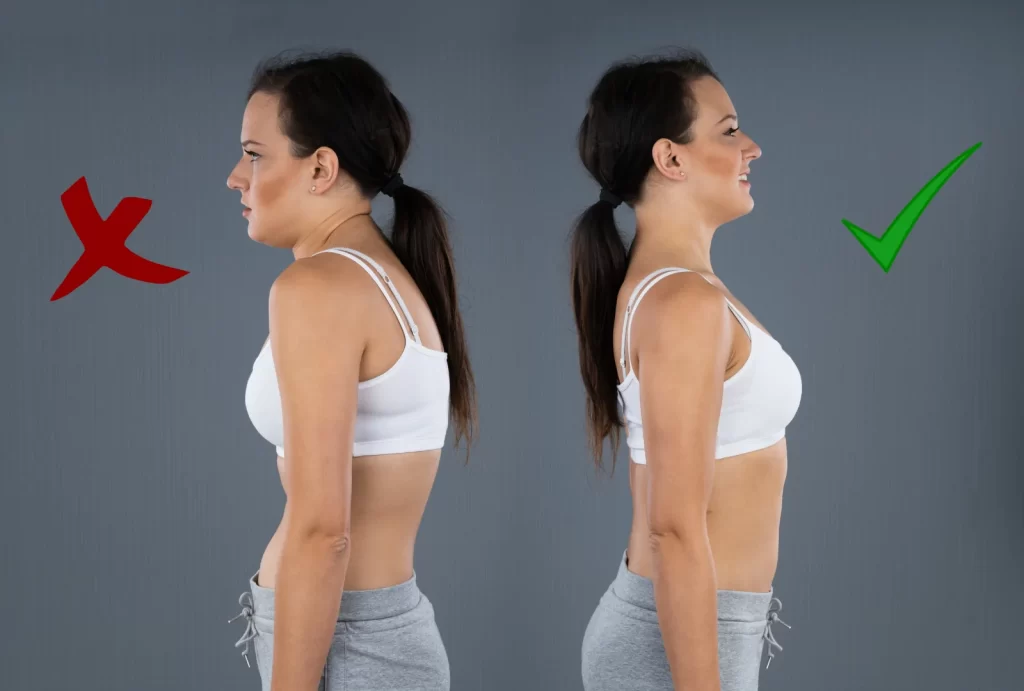Clenching teeth, or Bruxism, is a condition characterised by grinding, gnashing, or clenching the teeth . The most common symptoms of teeth clenching include
- headaches,
- jaw pain,
- tooth sensitivity,
- ear pain,
- neck and shoulder pain,
- disrupted sleep,
- and worn or chipped teeth.
In very bad cases chronic teeth clenching can lead to temporomandibular joint (TMJ) disorders and gum recession . Now that we've put out that list of atrocities let's discuss these symptoms in further detail...
How Does Teeth Clenching and Ear Pain Link to Each Other?
The grinding and clenching of teeth can put pressure on the jaw joint, leading to pain and inflammation in the surrounding muscles. This can then radiate to the ears. Imagine a fire spreading through a forest - that's likewise. Also, Bruxism can cause damage to the teeth and jawbone, leading to further ear pain

The Connection Between Bruxism and Eye Pain?
The pressure and tension caused by clenching the teeth can lead to strain and fatigue in the eye muscles, resulting in pain, headaches, and even vision problems. Teeth grinding and vision problems - what an unfortunate combination 🙁 .
First, the clenching and grinding of teeth can lead to tension and pressure in the surrounding muscles, including the muscles around the eyes. This tension and strain can cause pain and fatigue in the eye muscles, leading to eye pain.
Secondly, Bruxism can cause referred pain, meaning that pain in one area of the body is felt in another area. In the case of Bruxism, the pressure and tension in the jaw joint and muscles can cause referred pain to the head, face, and eyes.
The Effects of Teeth Grinding On your Neck Muscles and Joints?
Teeth grinding can lead to muscle tension and pain in the neck, shoulders, and upper back, as well as headaches and jaw pain. Bruxism can also cause damage to the temporomandibular joint (TMJ) over time. The TMJ connects the jaw to the skull and allows for movement of the jaw.
The TMJ is in the jaw near the neck and shoulder muscles, and the tension and pain caused by Bruxism can radiate to these areas, leading to neck and shoulder pain. Also, the constant pressure on the TMJ can lead to inflammation and damage to the joint, causing pain and stiffness in the jaw and neck.
If left untreated, Bruxism can cause chronic pain and discomfort in the neck and jaw. This makes it difficult to perform everyday tasks such as chewing, speaking, and even sleeping. Nobody likes to wake up from a bad night's rest so make sure to get in contact if you are experiencing this pain.
This article was read and reviewed by the face of DR Aesthetica himself - DR Baldeep Farmah.

How Poor Posture Contributes to Teeth Grinding and Neck Pain?
Poor posture can contribute to teeth grinding and neck pain in a few ways. First, when the head is tilted forward or the shoulders are rounded, it can put extra strain on the neck muscles and joints, causing tension. This tension can then radiate to the jaw muscles and contribute to teeth grinding.
Poor posture can also contribute to stress and anxiety, which are common triggers for teeth grinding. When the body is in a slouched or hunched position, it can increase feelings of stress and tension. This stress can then lead to teeth grinding.
Practise good posture habits throughout the day to prevent contributing to teeth grinding and neck pain. This can include sitting up straight, keeping the shoulders back and down, and aligning the head over the shoulders.

Teeth Clenching-Induced Facial Swelling: Symptoms, Causes, and Diagnosis?
Facial swelling is as a result of the pressure and tension created by constant teeth clenching. The swelling can occur in various areas of the face. Symptoms of teeth-clenching induced facial swelling can include:
- Swollen, puffy, or inflamed cheeks
- Swollen or tender jaw muscles
- Swelling around the eyes or eye sockets
- Pain or discomfort in the affected area
- Difficulty opening and closing the mouth
The causes are related to the pressure and tension created by teeth clenching. This can lead to inflammation and swelling in the surrounding muscles and tissues. Sometimes, facial swelling may also be caused by an underlying dental issue, such as an infected tooth or abscess.
If your struggling with any of these symptoms feel free to contact us in order for us to help diagnose if you have Bruxism/teeth grinding as well as suggest possible solutions. Your pain relief is our desire!
However do you Want a treatment that:
- That lasts approximately 6 months?
- Only requires 24 hours of downtime
- Is so painless that it requires no anaesthetic
- Displays results by 4 weeks
Then a Botox treatment in Birmingham may be perfect for you! View more information on a Botox treatment here



